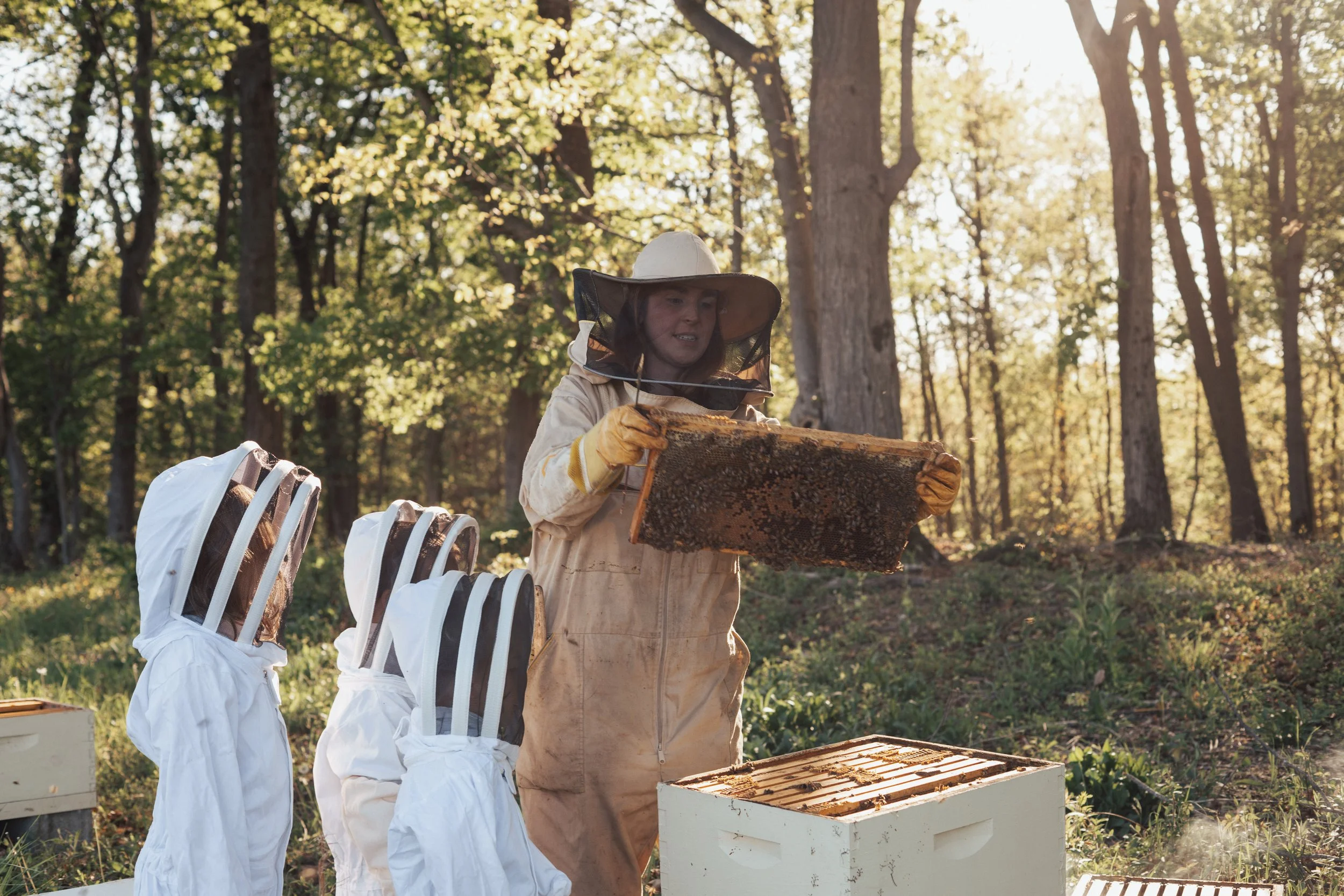Reviving the Apiary
Reviving the Burnt Hill Apiary: A Journey of Resilience, Renewal, and Partnership
In 2018 I started keeping bees at Burnt Hill. To be honest, I was trying without much success at first. I began with four hives, tended them all summer, and lost every single one by winter. The next spring I tried again, this time with eight hives. With no success the year before, I figured more hives was the answer! That winter four of the eight survived. It felt like a small victory, something to build on. From there, I was off to the races, growing the apiary steadily over the next few years.
By 2022, we had built our way up to 30 hives. But when I was diagnosed with AML that April, the bees quickly became one of many casualties of my cancer battle. Years passed without hive work, mite treatments, or basic care. In the end, every hive died except one. One resilient hive endured three years without intervention, no feeding, no hygiene, no treatments, only survival. Against all odds, that hive was thriving.
When I achieved remission after three years of treatment, I felt my energy return and with it, inspiration to revive many long-dormant projects like the apiary. But I knew I could not do it alone. I needed a master beekeeper, someone who could teach, guide, and partner in caring for the bees. That is when my sister Ashli reminded me of a connection: a year earlier, while I was in treatment, someone named Colie had visited Old Westminster, fallen in love with our wine called Honey, and left her card offering to collaborate. Ashli passed me the card, I reached out, and Colie Huff, an incredibly kind and gifted beekeeper, joined our journey.
Our first step together was to split that one resilient hive, successfully creating two. We then added four more nucs, and our apiary had grown to six hives. In June, we pulled honey for the first time from that original survivor. It was the most delicious honey I have ever tasted, raw beyond-organic wildflower honey from Burnt Hill pastures, made without treatments or interventions of any kind. Pure and elemental. Chef Tae incorporated that honey into his first Burnt Hill menu, which he showcased at the James Beard Foundation in New York City on August 1. Working alongside Colie has been such a gift. She is generous, knowledgeable, and deeply committed to the vision we share at Burnt Hill. Together, we are excited to share this honey in new forms, including a Burnt Hill food, wine and wax seals and candles.
Bees are more than honey producers. They are a living measure of the farm’s health. They reflect the quality of the soil, the abundance of flowers, and the balance of the ecosystem. When the land thrives, the bees thrive. When something is off, whether pesticides, disease, or habitat loss, the bees show it first. Their resilience, or their struggles, mirror the larger story of the farm itself. That single hive that survived against all odds is proof of the strength of this land and the ecological integrity we have worked hard to restore.
At Burnt Hill, bees are an essential piece of our regenerative polyculture. Their pollination ties the entire farm together. The vineyard, orchard, kitchen garden, wildflowers, and pastures all benefit from their work. Sheep graze meadows that bloom with clover, pigs turn soils that grow wheat, fruit trees flower in spring, all of it relies on bees moving pollen, ensuring fruit set, and strengthening biodiversity. They are the link between plants and animals, between wild spaces and cultivation. Without them, the system loses balance. With them, everything is more abundant.
Now we are building again. After years of dormancy, the apiary is growing back on a foundation of resilience. With Colie’s expertise and the land’s abundance, we are laying the groundwork for something lasting. Our vision is not just jars of honey, but a thriving apiary woven into the story of Burnt Hill, connected to our wines, our food, and the experiences we share here. The bees remind us to work with patience and humility, to create something nourishing and beautiful from the raw gifts of this land. And now, after setbacks and survival, we are filled with energy for the future.

